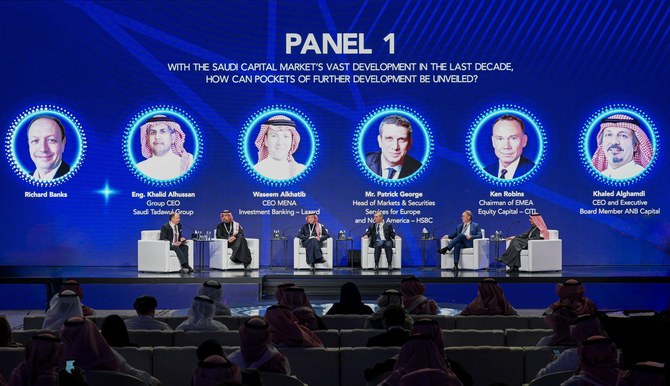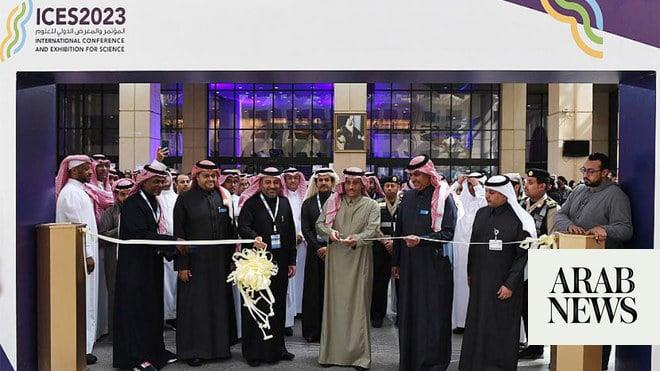
RIYADH: Local and international leading tech experts took to the stage at Riyadh Boulevard City on Monday to discuss the future of extended reality technologies in a panel discussion.
XR technologies are now more affordable than ever, which has led to their adoption in many industries globally such as education, film and industrial design.
The XR industry was valued at $27 billion a mere three years ago and is expected to reach around $300 billion by 2024.
One of the goals of the panel, hosted by Gamers8, Ithra and the Saudi Esports Federation, was to spread awareness about Ithra’s Creative Solutions program, which has now hosted two cohorts of tech creatives, some of whom have been nominated for the Virtual Reality Awards in December.
It also aims to educate the public about the newest XR technologies and their implementations.
From VR arcades back in the 1990s to PlayStation Move in 2010 and portable VR headsets today, these technologies have been in development for years. Now, they are slowly being integrated into our daily lives.
The panel was moderated by marketing communication specialist Adel Al-Megren, while many questions about AR, mixed reality and artificial intelligence were answered by Simon Benson, inventor and tech consultant; Faisal bin Homran, head of esports at SEF; Rodrigo Terra, co-founder of ARVORE Immersive Experiences; and Dr. Ali Al-Shammari, managing director of NEOM Academy.
Esports education is one of the main goals of the biggest gaming and esports festival globally, Gamers8, and aims to create a greater market for local production and consumption.
Currently, only 1 percent of locally produced video games are consumed in the Saudi market.
“We see the program as a window, as a gate, that connects Saudi to the world and the world to Saudi,” said Filipe Gomes, curator of the Creative Solutions program.
Benson, who is also on the advisory board for Ithra’s Creative Solution program, said: “Instead of using the keyboard and mouse or a touchscreen as a tiny thing in our phone or our smartwatches to interact with digital content, we can actually do it in a much more intuitive way.”
Diego Terra, chief technology evangelist at ARVORE, said that now films and games can become more immersive as these technologies interact with the body itself and are also more user-friendly to older generations.
“When we have the real-time content and you have interaction, you can explore one thing that is crucial, which is the senses,” he said.
While headsets are currently on the market, smart glasses are a growing trend.
Smart glasses can instantaneously translate a restaurant menu instead of typing it into a translator app.
“If we were to have a video call, instead of you just appearing as a flat person, you could be in 3D, like a hologram in front of me,” Benson said, describing another use for the technology.
“It’s very much on our horizon now…definitely within our lifetime,” he added.
The newly charted territory of the metaverse goes hand-in-hand with XR technologies.
The metaverse, accessed through these technologies, will allow us to enter places and not just links.
“We’re going to [be] doing all the things that we do now but in a different way…Websites will not be websites, [they] will be places…The vision is that gaming is just a place you go, not something that you download and use,” said Terra.











